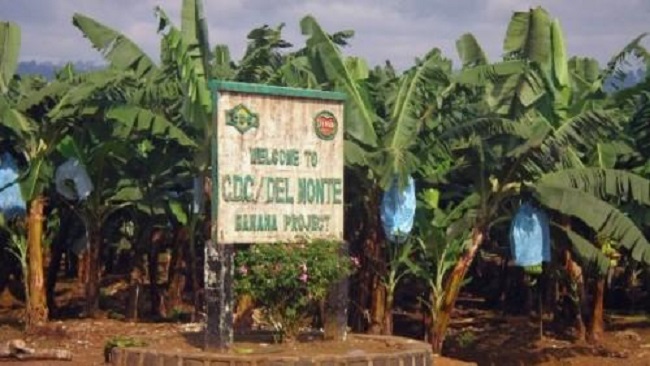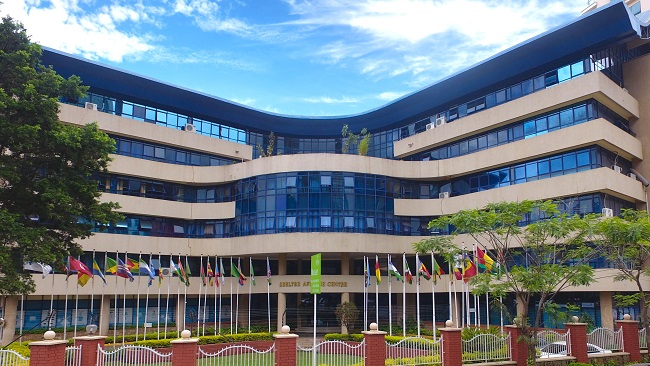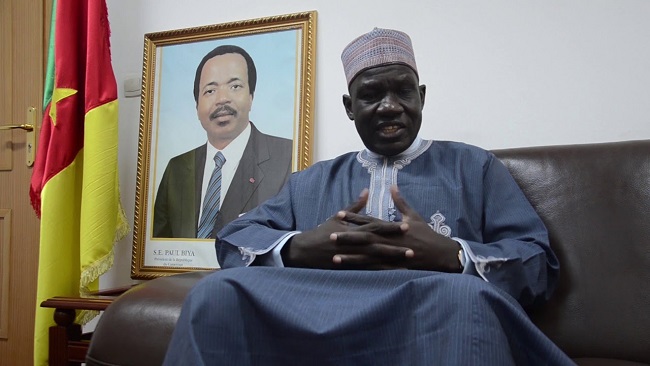2, September 2021
Ailing Biya projects economy to grow 4.4 percent in 2022 0
Cameroon’s economy is predicted to grow by 4.4 percent next year while economic activity this year will rebound to 3.4 percent compared with 0.7 percent in 2020, according to the country’s President Paul Biya.
In 2022, based on the assumption that the pandemic will be brought under control and economies will open up, coupled with the fallout from the stimulus measures, Cameroon’s economy is projected to grow by 4.4 percent, with 4.7 percent for the non-oil sector and -1.8 percent for the oil sector. Inflation is expected to be contained at 2 percent, below the community threshold of 3 percent, Biya said in a document addressed to government officials.
The document also outlined the country’s proposed budget for the fiscal year 2022, providing insight into top priorities for the Central African nation.
The post COVID-19 recovery plan aims to ensure the structural transformation of Cameroon’s economy with particular emphasis on the continuation of the import-substitution policy required to strengthen the resilience of the economy, Biya said in the document that was made public on Tuesday.
“Specifically, special emphasis will be placed on finalization and commissioning of major first-generation projects, strengthening of social cohesion and decentralization, reconstruction of crisis-affected regions, particularly the Northwest, Southwest and Far North, organization of the Africa Cup of Nations and continued implementation of Universal Health Coverage,” Biya said.
The fight against security threats with a view to sustainably overcoming the pertinent challenges facing the country will be strengthened, according to the document.
Source: Xinhuanet


























8, September 2021
No milk or water: Shoppers face shortages at UK grocery stores 0
The supply chain troubles caused by Brexit and the pandemic have been so bad for Satyan Patel that the shelves at his convenience store in central London are seriously lacking water and soft drinks.
“Last week I ran out of Coca-Cola. I haven’t had large bottles of Evian for three weeks,” said Patel.
“Without products, there’s no business. With empty shelves like this, no one is going to come in the shop anyway,” he added.
A wide range of businesses have suffered through shortages for several months in the UK — from milkshakes at McDonald’s to beer at a pub chain to mattresses at Ikea.
But shoppers are also facing empty shelves for things as basic as water and milk at UK supermarkets and grocery stores.
The coronavirus crisis has severely disrupted the global supply chain, but Britain’s divorce from the European Union late last year has exacerbated the problem in the UK.
Shops are not getting products delivered to them as rules making it harder to hire EU citizens has left haulage companies with a drastic shortage of lorry drivers.
Many people who returned to their home countries from Britain during the lockdown have not returned.
Co-op, a cooperative supermarket group, said it was “impacted by some patchy distribution” to its deliveries but it was working with suppliers to re-stock quickly.
The group said it was recruiting 3,000 temporary workers “to keep depots working to capacity and stores stocked as quickly as possible”.
– Where’s the milk? –
According to recent estimates, the UK currently faces a shortage of about 100,000 lorry drivers.
“We had already decided to reduce our stock because of Covid… but now we’re finding it hard to get some products as well because they’re just not available,” Patel said.
At a supermarket near his store, the soft drinks aisle was a little short of bottles and cans but other shelves were full.
But 22-year-old sales assistant Toma said the situation was grim.
“We don’t have stock, we have nothing in our warehouse,” said Toma, who declined to give her last name.
“We have gaps everywhere,” she said. “Sometimes we receive only a certain amount (of some products). We don’t even have water.”
The shortages began when the pandemic hit and got worse after Brexit came into force on January 1, Toma said.
Some customers complain to supermarket staff and “say it’s us to blame”, she added.
At another major supermarket in southeast London, water bottles were sparse and milk was missing from shelves.
Frozen-food group Iceland and retail giant Tesco have warned of Christmas shortages.
Iceland head Richard Walker said the company has reduced deliveries as it has 100 fewer drivers than it needs.
“Every day we are missing around 10 percent of the stock we have ordered into our depots,” he wrote in a blog, adding that “when things were at their worst” its sole bread supplier was unable to deliver to as many as 130 stores per day.
– ‘Perfect storm’ –
Shortages of goods in the UK “will probably last for a while and may even intensify further”, according to a note by Capital Economics, a research consultancy.
A report this week from the Confederation of British Industry cited the Road Haulage Association as saying it would take at least 18 months to train enough Heavy Goods Vehicle (HGV) drivers to replace those who have left.
For the CBI, the dual effects of Brexit and Covid-19 are a “perfect storm”.
Stock levels in relation to expected sales fell by more than 20 percent to a record low across the retail and distribution sector in August, according to the CBI.
The group has urged the government to be more flexible on immigration and add skilled lorry drivers to a list of professions that are short on workers.
Road transport companies and businesses dependent on deliveries are offering bonuses and higher wages in an attempt to retain drivers, but the moves have raised concern that they could contribute to rising inflation.
Ryan Koningen, a 49-year-old project manager at a company in the City of London, said his colleagues often discussed the situation and “the question of costs: will they rise because drivers are paid premiums?”
He too said he had noticed shortages of “day-to-day products”.
Source: AFP